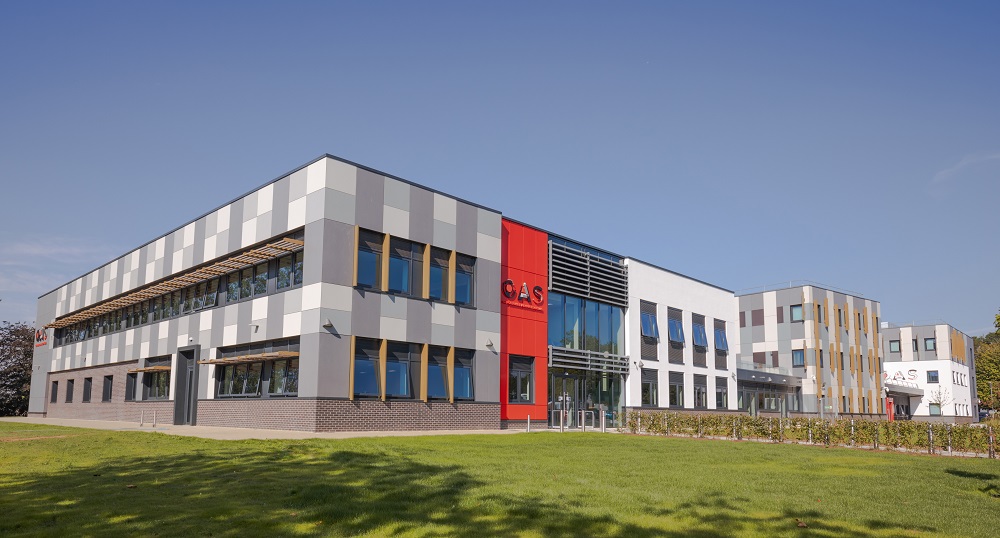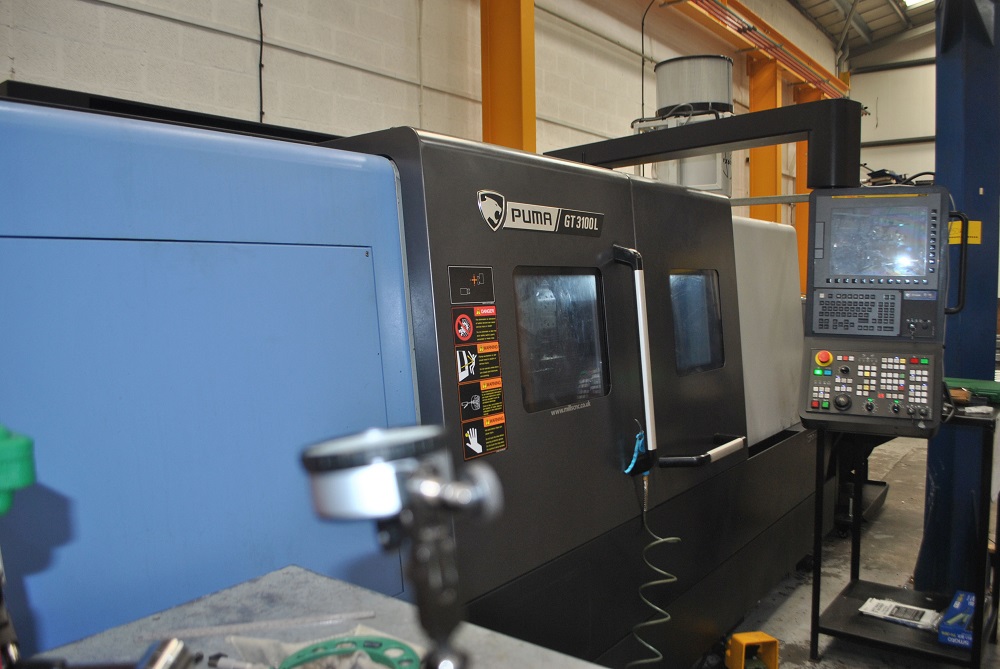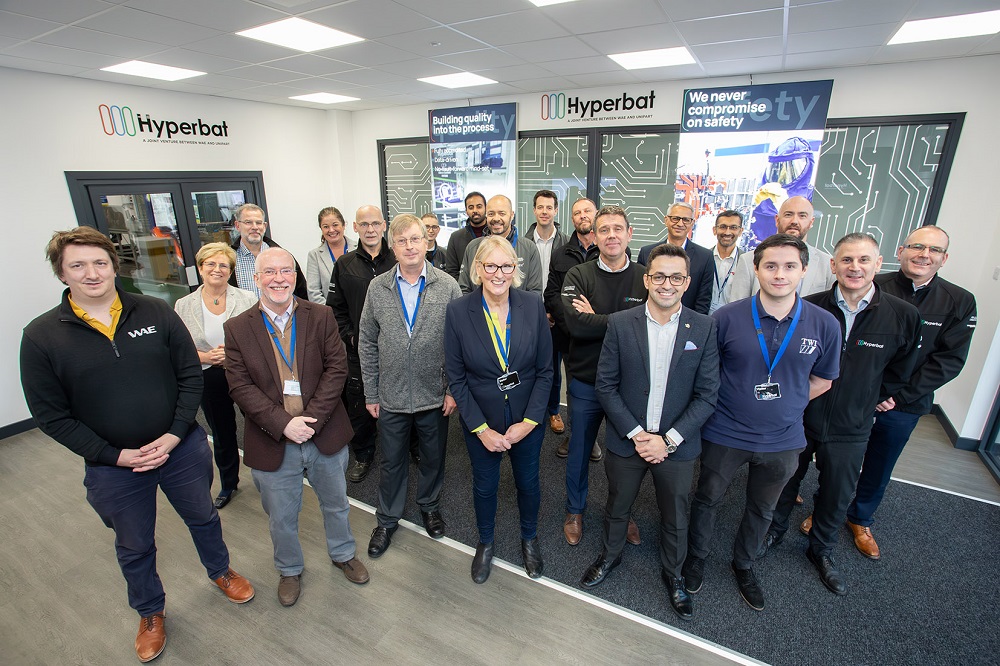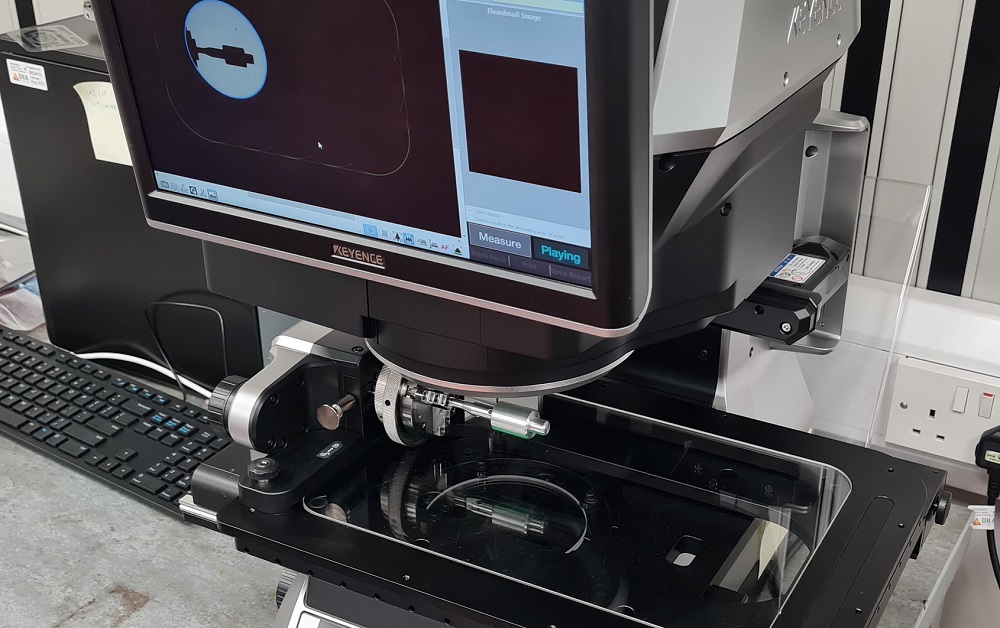Mills CNC has supplied Bowers & Jones, a design and manufacturing specialist of high-precision roll tooling and equipment, with a new DN Solutions Puma GT 3100L box guideway lathe.The new machine arrived at the company’s 15,000sq ft manufacturing facility in Bilston, near Wolverhampton, in August 2023. It joins two, previously-acquired (Doosan) machines supplied to Bowers & Jones by Mills CNC: a Puma 5100B lathe and a DNM 750 II vertical machining centre equipped with a 4th-axis unit that arrived in 2020 and 2021, respectively.The company has also ordered a new DN Solutions large-capacity, heavy-duty vertical turning lathe (a VTR 1216F), with installation scheduled for spring 2024.
With business returning to pre-pandemic levels and the company winning new contracts to supply replacement roll tooling and associated equipment to steel and copper mill customers across the world, Bowers & Jones has, since 2020, been on a mission to streamline and strengthen its in-house machining capacity and capabilities as a route to helping it achieve tangible and sustainable growth.
The company, under new ownership since 2020 and led by managing director, Jane Sommerville and her team, is committed to continuous improvement.As such, Bowers & Jones regularly monitors and benchmarks the performance of its manufacturing operations in order to identify production bottlenecks.A recent internal audit, undertaken by the company in early 2023, revealed an issue within its ‘small’ roll production operation and, in particular, highlighted the under-performance of an older mill-turn machine acquired some years earlier.
“The machine was purchased for a specific application we no longer manufacture”, says Sommerville.“This meant that the machine, with its relatively small working envelope, had limited value going forwards and, owing to its age, was also unreliable and prone to breakdown.”
As a consequence, the company made the decision to trade-in the machine, not for another mill-turn model as one might expect, but for a new, two-axis horizontal lathe.
Explains Sommerville:“Firstly, mill-turn machines are expensive. Secondly, the parts we manufacture and the processes we have developed to manufacture them, mean it’s often more efficient and effective for us to have stand-alone, independently operated lathes and machining centres. If and when required, parts can be easily transferred between our machines.”
At the time when Bowers & Jones was contemplating replacing the mill-turn machine by investing in a new machine tool, the company was approached by Mills CNC regarding a new FANUC-controlled Puma lathe it had in stock.
The machine in question was a 15” chuck Puma GT 3100L long-bed, box-guideway lathe equipped with a belt-driven spindle (35kW/2800rpm/1613Nm) and 12-station turret with 1275mm maximum turning length and 481mm maximum turning diameter. It was also available for immediate delivery.
“Although somewhat fortuitous in retrospect, the GT 3100L fitted the bill perfectly for machining our ‘small/medium-sized’ rolls and components,” says Sommerville.“So we decided to place the order for the new lathe once we had sold the mill-turn machine and secured the appropriate funding”, remembers Sommerville.
Having previously invested in Doosan machines, the company had already established good relationships with Mills CNC.
“We like Mills’ proactive and informed business approach,” she says. “The machines they sell and support are technically-excellent, reliable and competitively-priced, while the after-sales services they provide cannot be faulted.We rely on Mills to service our existing Doosan machines and use their ‘Mills CNC Finance Operation’ to help fund our machine tool investments.”
Since installation, the GT 3100L has been put through its paces machining a range of high-performance, highly-customised and application-specific replacement rolls and parts for new and existing steel mill customers.Characterised by their high-precision, tight geometrical tolerances and superior surface finishes, rolls designed and manufactured by Bowers & Jones are typically machined from high-quality forged tool steel billets in a range of batch sizes.
The rolls are first subject to roughing-out on the Puma GT 3100L before heat treatment. Afterwards, the finish-machining of parts takes place back on the Puma. Cycle times vary depending on the size of each roll and the required profiles and features that need machining. Larger and more complex rolls can involve more than 20+ hours of total machining time.
Rolls are performance-critical components. They are also consumable items. Rolls find usein metal-forming processes to enable metal stock to pass through one or more pairs of rolls to reduce material thickness and make it uniform.Where required, the process can also impart additional mechanical and application-specific properties required by the end user.
Established in 1954, Bowers & Jones has almost 70 years’ experience of designing and manufacturing high-precision rolls for steel mill customers involved in the production of steel tubes, pipes, rails and sections, as well as rolls and wheels for customers producing copper rods and wires. The company works closely with all customers to design and manufacture bespoke and tailored replacement roll tooling and equipment.
Bowers &Jones builds success on its considerable know-how and expertise. Other factors include the care and attention it brings to roll design, the quality of roll material selected and machined, and the methods of manufacture adopted. The company works in partnership with its customers and can design, manufacture and test (via simulation) roll tooling for new products, and help improve existing product lines.
Explains Sommerville:“High-quality designed and machined rolls may cost a little more, but they are an investment and help customers save time and money.”
Despite the Puma GT 3100L’srecent arrival, such has been its performance over the past two months that Bowers & Jones has continued its investment programme with Mills by placing an order for a new DN Solutions’ VTR 1216F vertical ram-type lathe. This will be the company’s first vertical lathe investment.
With its fixed cross-beam, wide-column and box guideway design, large turning diameter and length (1600 and 1250mm), and 45kW/400rpm spindle, the VTR 1216F will enable Bowers & Jones to machine larger and heavier roll and ring-type components, including larger piercing rolls.
Says Sommerville:“Instead of clamping larger diameter rolls in a horizontal lathe, which takes time and can lead to deformation and out-of-roundness during machining, the investment in the VTR 1216F will enable us to machine these larger components much more effectively and help us reduce set up and part cycle times.”
For further information www.millscnc.co.uk



















